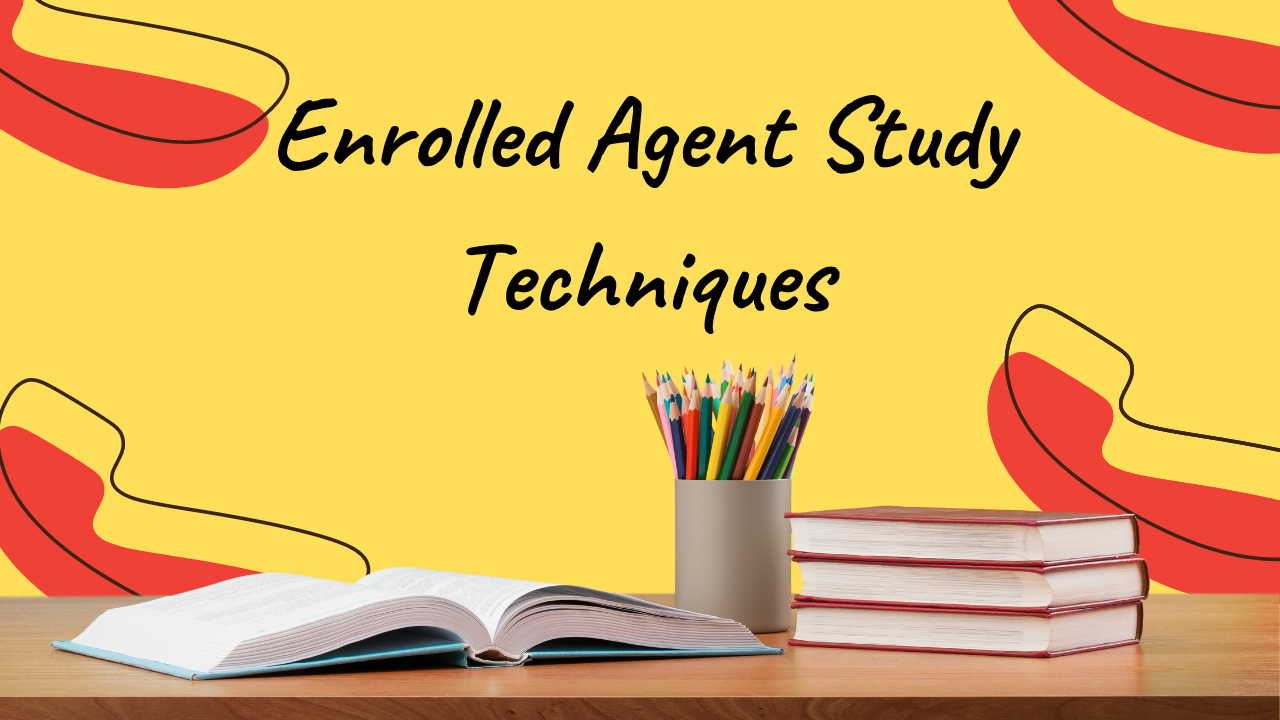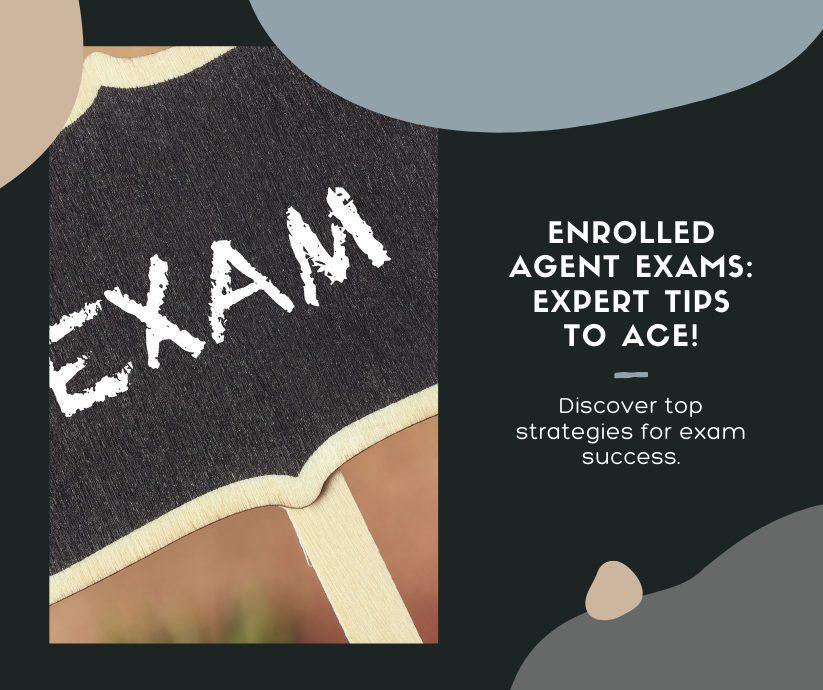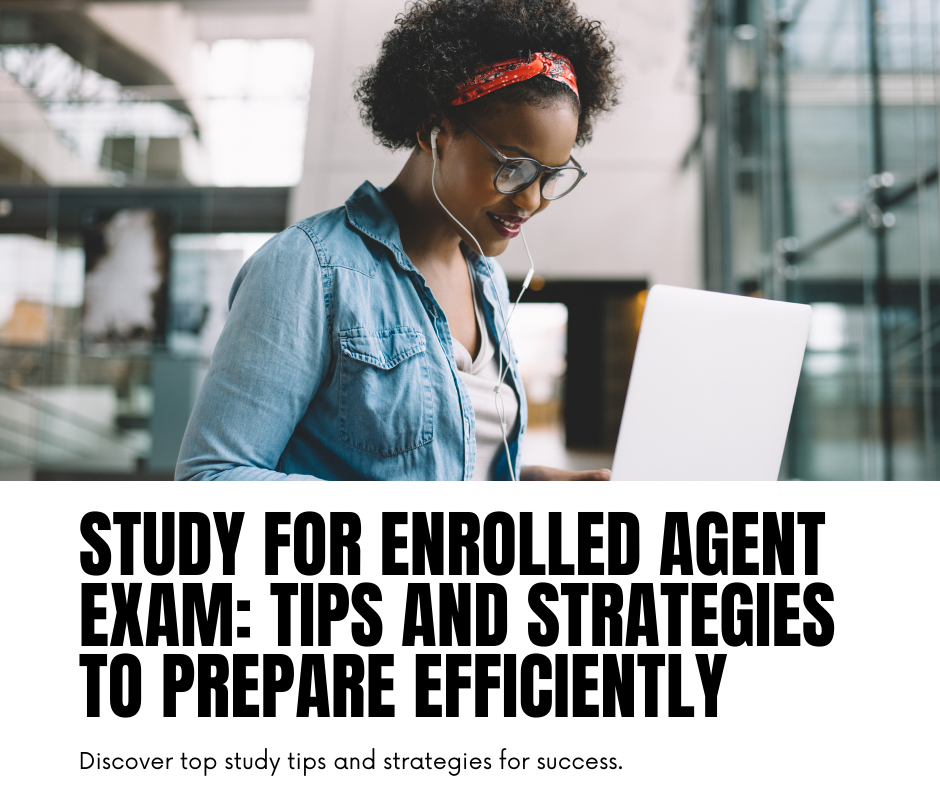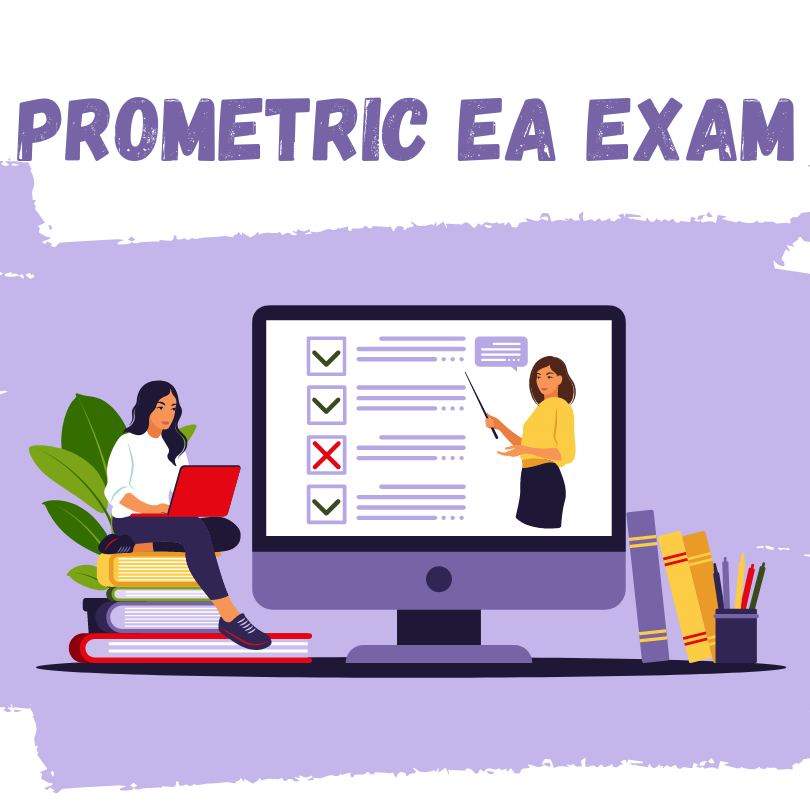Become an Enrolled Agent: Step-by-Step Guide
Passing the Enrolled Agent (EA) exam opens the door to...

There are several Enrolled Agent study techniques that can help candidates pass the exam. Aspiring tax professionals who want to become Enrolled Agents (EA) must pass the Internal Revenue Service (IRS) Special Enrollment Examination (SEE). The exam tests candidates on various tax-related topics, including individual and business taxation, ethics, and representation. To pass the exam, candidates must have a solid understanding of tax laws, regulations, and codes.
In this article, we will compare and contrast various Enrolled Agent study techniques and discuss their effectiveness in helping candidates pass the SEE.
One of the most common ways of studying for the SEE is self-study. Candidates can purchase study materials, such as textbooks and review guides. Self-study allows candidates to learn at their own pace and review the material as often as needed. It can be a cost-effective option, but the prices for many Enrolled Agent study courses have increased substantially over the years. Will paying more actually result in better outcomes? Probably not.
Self-study requires a lot of self-discipline and motivation. Candidates must create a study plan and stick to it, which can be challenging, especially for those who have other commitments. Additionally, self-study may not be effective for candidates who struggle with certain topics and need additional guidance.
Live Enrolled Agent study review courses are offered by various Enrolled Agent preparation companies. These courses provide candidates with structured classroom instruction. Live courses are taught by experienced Enrolled Agents or tax professionals who have a deep understanding of the exam content.
Live review courses can be expensive, and candidates must attend classes at specific times and locations. Additionally, the pace of the class may be too fast or too slow for some candidates, and they may not have the opportunity to ask questions or receive individual attention.
Online Enrolled Agent study review courses offer a flexible and affordable alternative to live courses. Programs such as EA Exam Test Bank offer online review courses that provide candidates with practice questions, full or mini practice exams, power notes, and AI analytics. Online courses are self-paced, so candidates can study whenever and wherever they want, even on mobile devices.
Online Enrolled Agent study review courses are generally less expensive than live courses, and they provide candidates with access to experienced Enrolled Agents or tax professionals through discussion forums, email support, or AI chatbots that are experts on the tax code. However, some candidates may find online courses less engaging than live courses, and they may not receive the same level of individual attention.
Study groups are groups of candidates who come together to study for the SEE. Enrolled Agent study groups can be organized by candidates themselves or by Enrolled Agent preparation companies. Enrolled Agent study groups provide candidates with the opportunity to discuss difficult concepts, ask questions, and share study strategies.
Enrolled Agent study groups can be effective for candidates who need motivation and support. They can also be a good way to get individual attention from other candidates who may have a deeper understanding of certain topics. However, study groups can be time-consuming, and candidates must coordinate their schedules with other members of the group.

Flashcards are a popular Enrolled Agent study tool for many Enrolled Agent candidates. Flashcards or Power Notes allow candidates to review key concepts and test their knowledge quickly. Flashcards are also portable, so candidates can study on the go. EA Exam Test Bank offers Power Notes that provide automatic flashcards for weaker subject areas.
Flashcards can be effective for candidates who need to review key concepts quickly or who prefer to study in short bursts. However, Enrolled Agent study flashcards may not be effective for candidates who struggle with certain topics and need more in-depth explanations.
There is no one-size-fits-all answer to this question. Each candidate has their own learning style, strengths, and weaknesses. Some candidates may find self-study to be the most effective, while others may benefit more from live review courses or online courses.
However, research has shown that candidates who use a combination of Enrolled Agent study techniques tend to score higher on the SEE than those who rely on a single study technique. This is because using multiple study techniques helps candidates reinforce their understanding of key concepts and identify knowledge gaps.
Therefore, the most effective Enrolled Agent study technique is likely a combination of several techniques. For example, a candidate could use self-study materials to review key concepts, attend an online review course to receive structured instruction, participate in a study group to discuss difficult topics, and use flashcards to test their knowledge quickly.
It’s also important for candidates to create a study plan that works for them. An Enrolled Agent study plan should include specific goals, deadlines, and study sessions. Candidates should also take practice exams to assess their knowledge and identify areas where they need additional review.
In conclusion, passing the IRS Special Enrollment Examination is a challenging task that requires candidates to have a solid understanding of tax laws and regulations. There are several Enrolled Agent study techniques available, including self-study, live review courses, online review courses, study groups, and flashcards. Each study technique has its own advantages and disadvantages, and the most effective technique for each candidate will depend on their individual learning style and needs. However, using a combination of study techniques and creating a comprehensive study plan can help candidates pass the SEE and become successful Enrolled Agents.

Passing the Enrolled Agent (EA) exam opens the door to...

The journey to becoming an Enrolled Agent is both challenging...

Imagine gazing at a promising future as a tax professional.However,...

Achieving the status of an Enrolled Agent is a significant...

Are you envisioning a successful career as an Enrolled Agent?It's...